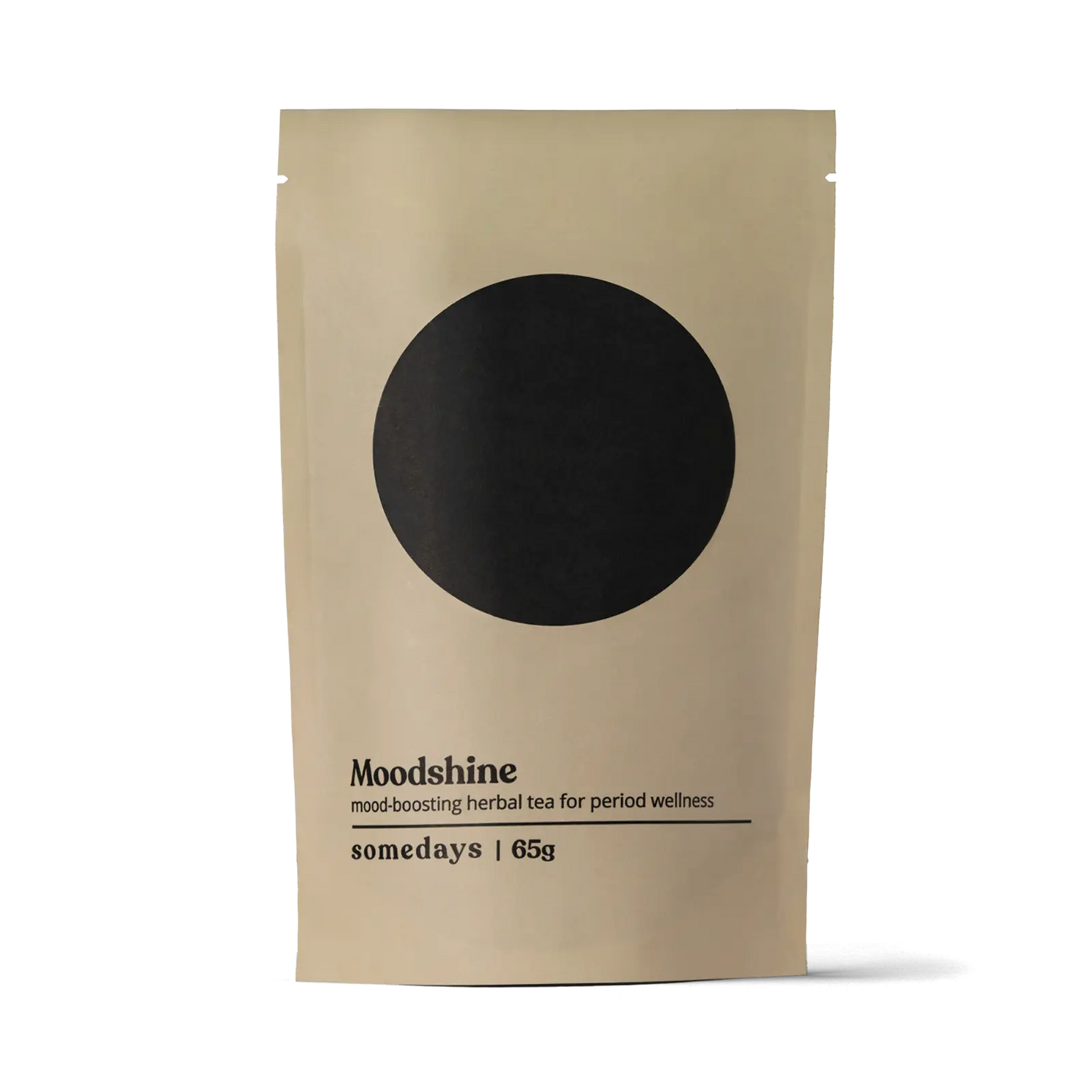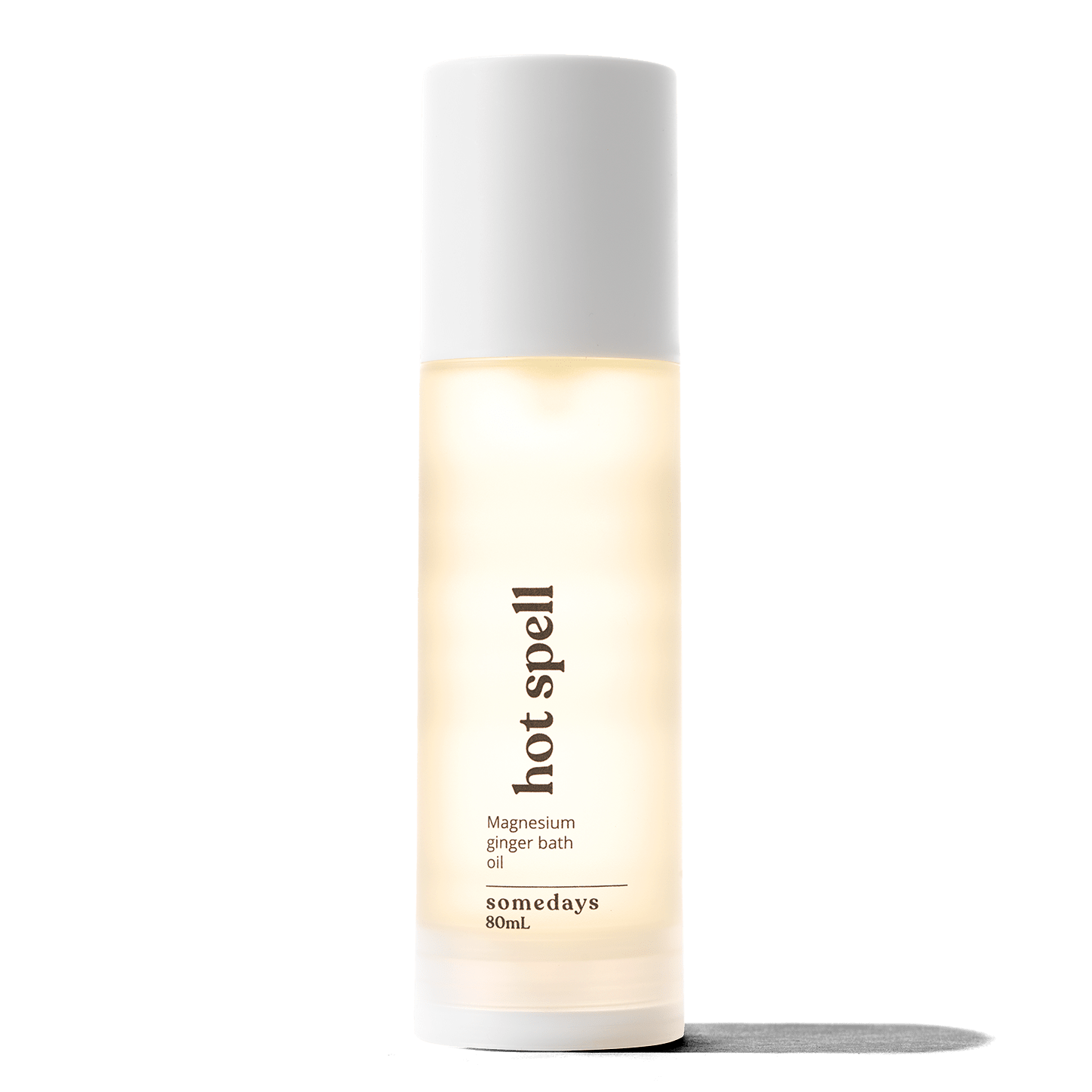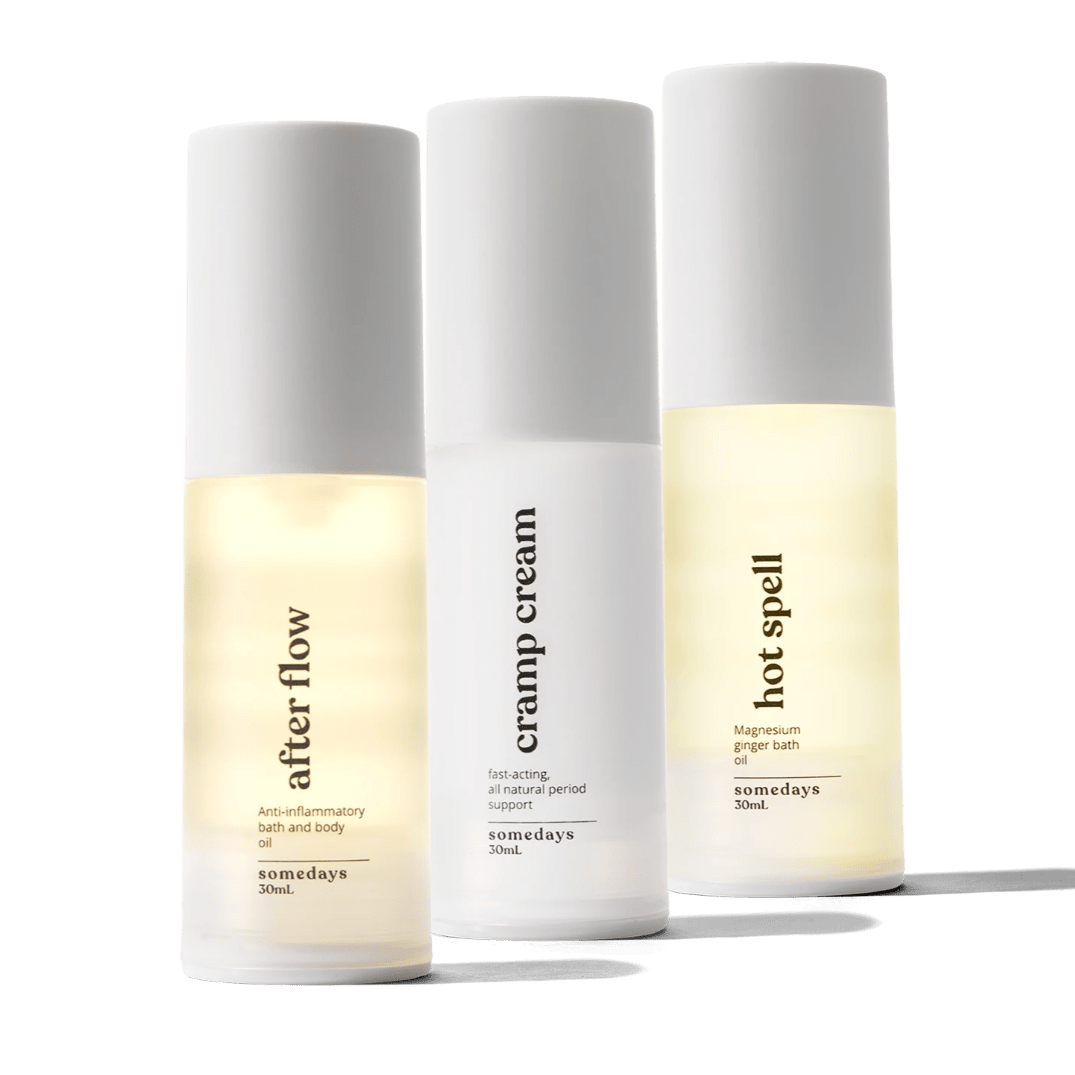My Journey with Transness and Endometriosis

When I was a teenager and first started experiencing menstrual pain, it was explained to me as an unavoidable part of “womanhood”. As I got older, I distanced myself both from the idea of womanhood and it’s unexplainable suffering that seemed to be carelessly attached to the sentiment. Coming to terms with my transness went hand in hand with recognizing a decade of pain and missing out on life experiences because I was waiting out my menstrual symptoms while too uncomfortable to speak to a doctor candidly without being misgendered or treated in a way that felt uncomfortable and invasive.
These circumstances are challenging on their own, but combined left me unaware of the severity of my symptoms and uninformed about the complex and under diagnosed illness I have: endometriosis.
I spent my early 20’s working full time and watching myself grow less and less capable of relying on my body. When I voiced my fears and nervousness surrounding my health with alarming symptoms like erratic and painful bowel movements as well as frequent urinary pain, I was met with constant invalidation. This was because of societal notions surrounding “women’s health” about how a painful cycle was the expectation and I was the one being too weak willed to do what “women” were designed to do. I felt further alienated from my body and from a community where I could look for answers about my health. I slowly sunk away from socializing, unable to advocate for the constant and increasing pain I was in, up until it became unbearable this last year and I made an appointment to see a gynecologist.
Like most people with endometriosis, it will not be a surprise for me to say even after pouring my heart out in a doctor’s office, my experiences were written off as normal menstrual pain and the only solution they offered me was starting birth control to suppress my cycle.
I tried to stay positive and trust my doctor and ended up spending 6 months on 2 different types of hormonal birth control with little to no progress with pain management. I went in for numerous blood tests, pap smears, and ultrasounds and felt my whole body clenching tighter with each appointment being led by hasty and emotionally detached nurses who all the while didn’t take even a moment to consider how it felt for me to go through these invasive and uncomfortable procedures. I left those offices with inconclusive test results, hefty medical bills, and a wounded sense of security around my body and my already strenuous relationship to the gender binary.
I felt trapped and misunderstood walking through the world as a trans person living in a cisgendered centric society, and now I had the burden of a undiagnosed reproductive illness hanging heavily over my head. I did not know how to talk about my experiences; I was feeling dismissed and intruded upon at the doctor’s office and I did not have a community to seek solace in. I did not know how to reach out for help in a different direction and felt ashamed of the dysfunction I was experiencing surrounding my body. I felt a damaging connection to the medically projected ideals of “womanhood”, and like my ability to talk about my body was shriveling up with every visit to the doctor’s office.
When I read an infographic about endometriosis while scrolling through instagram on my bed in another bladder flare, which has become regular for me, I felt my heart drop.
I read and reread the symptom list over and over in disbelief that it listed ever single struggle I had been living with: painful menstruation, constipation and/or diarrhea, mental fog, urinary pain and urgency, pain with sex… it was all there written out with “endometriosis symptoms” in a large easy to read header font. I was so excited to call my doctor for another appointment, but this time with information that could help move my stagnant process along. When I explained my suspicions about an endometriosis diagnosis, I was met with a short and invalidating explanation that it was a very rare condition and would almost definitely not affect me because I was too young and simply didn’t fit the criteria. I begged my gynecologist to take a second look, because I was sure this diagnosis fit too well to be a mistake on my part of misinformation. My doctor cut our appointment short letting me know the only way to be sure would be a surgery which she scared me off from explaining the possible complications and costs to me and my support system. I left that appointment feeling completely defeated and isolated, like my last chance to figure out what was really going on with my health had done nothing but sink the already drowning ship I was on.
Although I felt sure, I was worn out and on the verge of giving up, I suddenly found myself reaching out to public personal profiles of people who were talking about their endometriosis. Many of them dedicated their social media to their illness and educating people around them on misdiagnosis and the misinformation that circled menstrual pain. I was shocked reading through so many personal accounts of people who had been through exactly what I was going through with my health and my doctor. The rounds of birth control and inconclusive blood tests were highlighted in each account like a badge of experience any “endo-warrior” had gone through already. I realized after spending that time researching other people’s personal experience getting diagnosed with endometriosis, that I could not afford to keep waiting for an answer. I had to know if this was my health journey, too.
Against the advice of my doctor’s and family, I found an endometriosis specialist/surgeon and made my diagnostic surgery appointment. I was terrified of the results no matter which I would get: a diagnosis that I would have to live with an incurable chronic illness, or yet another negative test result leaving me in the dark about my bad health. I’m relieved to say the surgery was scary but successful, and they found the endometriosis and excised as much of it as they could. I felt a mix of emotions around the results; excited to have a name for my illness so I could begin to talk about it to the people in my life, as well as a deep and complicated feeling of worry about being permanently tied to an illness with my reproductive organs and definitive connection to something considered a “woman’s illness”.
What I’ve come to understand now, and hope anyone else in a similar condition can come to, is that your reproductive organs and the health that surrounds them does not define who you are and does not dictate your life.
There are many different paths of healing you can walk down, and many communities dedicated to helping one another through these tough decisions. I am choosing to speak up about my health and my identity as a trans individual, side by side, because they are both a part of how I walk through the world.
I have endometriosis and that doesn’t change that I am not a woman. My relationship to myself and my body is sacred, and how I best understand them is defined by me, not anyone else.
I will find an endometriosis management plan that works for me, and I will do it and speak up about it without compromising my identity or my relationship to my body and gender. That is the community I think is worth building.
Previous Article All Articles Next Article
All Articles


